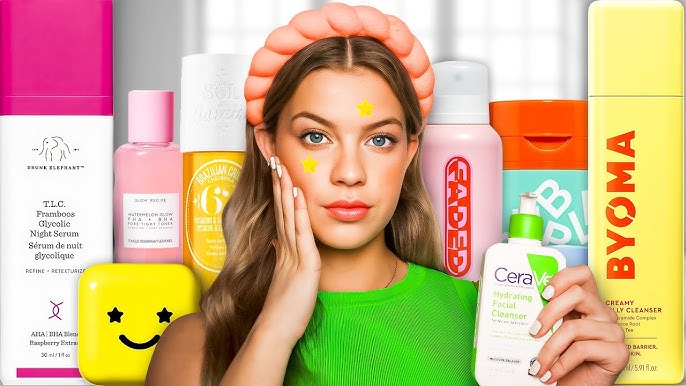In a world where beauty standards and Vegan Beauty Products trends are constantly evolving, achieving and maintaining healthy skin remains a timeless pursuit. But skincare isn’t just about vanity; it’s about nurturing the largest organ of your body and fostering a sense of well-being. Let’s delve into the art and science of skincare, exploring how to achieve and maintain a natural, radiant glow.
Understanding Your Skin
Before embarking on any skincare routine, it’s crucial to understand your skin type and its unique needs. The primary skin types include:
- Normal: Balanced skin with no excessive dryness or oiliness.
- Oily: Prone to shine and enlarged pores due to excess sebum production.
- Dry: Lacking moisture, which may result in flakiness or tightness.
- Combination: A mix of oily and dry areas, often with an oily T-zone (forehead, nose, and chin) and dry patches elsewhere.
- Sensitive: Prone to redness, irritation, or allergic reactions.
Each type requires a tailored approach to address its specific needs and maintain balance.
The Foundations of Skincare
A successful skincare regimen is built upon three foundational steps: cleansing, moisturizing, and sun protection.
- Cleansing: The cornerstone of any routine, cleansing removes dirt, oil, and impurities from the skin. It’s essential to choose a gentle cleanser suited to your skin type. For instance, a foaming cleanser might be ideal for oily skin, while a hydrating cleanser could benefit dry skin.
- Moisturizing: Regardless of skin type, moisturizing helps to lock in hydration and support the skin’s natural barrier. Opt for a lightweight, non-comedogenic moisturizer for oily skin, and a richer, emollient formula for dry skin.
- Sun Protection: Daily sunscreen application is crucial in protecting your skin from harmful UV rays. Broad-spectrum SPF 30 or higher is recommended, even on cloudy days or when staying indoors, as UV rays can penetrate windows.
Enhancing Your Routine with Targeted Treatments
Once the basics are covered, you can incorporate targeted treatments to address specific concerns:
- Exfoliation: Regular exfoliation helps remove dead skin cells, promoting a smoother texture and brighter complexion. Depending on your skin type, you might choose a physical exfoliant (like scrubs) or a chemical exfoliant (like AHAs or BHAs).
- Serums: These concentrated formulas target various skin issues, such as hyperpigmentation, fine lines, or dehydration. Common ingredients include Vitamin C for brightening, hyaluronic acid for hydration, and retinol for anti-aging.
- Face Masks: Face masks can provide an added boost, offering benefits like deep hydration, detoxification, or calming effects. Whether clay, sheet, or gel masks, they can be a luxurious addition to your skincare routine.
Embracing a Holistic Approach
Skincare isn’t just about products; it’s also about lifestyle. A holistic approach includes:
- Diet: Eating a balanced diet rich in antioxidants, vitamins, and minerals supports skin health. Foods like berries, leafy greens, and fatty fish contribute to a vibrant complexion.
- Hydration: Drinking ample water helps keep the skin hydrated from within, enhancing its overall appearance and function.
- Sleep: Quality sleep is essential for skin repair and rejuvenation. Aim for 7-9 hours of restful sleep per night to support your skin’s natural processes.
- Stress Management: Chronic stress can negatively impact your skin, leading to issues like acne or premature aging. Incorporating stress-reducing activities, such as meditation or exercise, can benefit your skin and overall health.
Conclusion
Skincare is both an art and a science, blending the precise use of products with a holistic approach to well-being. By understanding your skin’s unique needs and incorporating a comprehensive routine, you can achieve and maintain a natural, radiant glow. Remember, the journey to healthy skin is ongoing, and consistency is key. Embrace the process, listen to your skin, and celebrate the beauty of your natural complexion.

